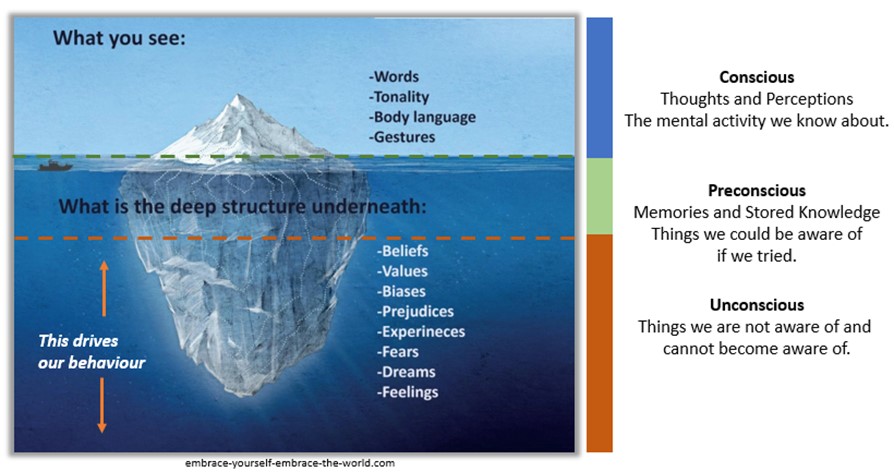We are often not as in control of our choices as we think

We love to consider ourselves as conscious agents that are in control of all our actions. Research suggests that we are often not as in control of our choices as we might think.
Every day, we make countless decisions, from what to wear and eat to major life choices. It often feels like we’re consciously weighing our options before arriving at a choice. However, emerging research in psychology and neuroscience reveals a fascinating truth: a substantial portion of our decisions are made on a subconscious level, hidden from our conscious awareness.
Most decisions are not the result of conscious deliberation. Our subconscious mind plays a significant role in shaping our choices. Our decisions are guided by conscious and subconscious processes that mostly work in tandem.
Our brains have a dual operating system; both a conscious and a subconscious component. We have both a thinking (conscious) and a feeling (subconscious) brain. The thinking brain is methodical and rational. It is objective and factual but slow and consumes a lot of your energy. The feeling brain is effortless and quick. It is subjective and relative. Most of the time our instincts help us tremendously to function daily. These quick decisions (gut feel) are unfortunately wrong at times and irrational. Long-term investment decision-making is unfortunately often one such area.
Our reasoning is however, just like the tip of the iceberg, only a small part of the full picture. What we can see is not usually what drives our behaviour.

We erroneously assume that our reasoning is in control of our lives and that our emotions need to be constrained. Author Mark Manson suggests that it is our feeling brain that is driving our “consciousness car” because we are moved to action only by emotion. If the feeling brain drives the “conscious car” then reason functions as the navigator. Our subconscious mind is drawing on a vast reservoir of experiences, knowledge and emotions. It is our personal filters that colour our perceptions.
Emotions are complex signals that our minds generate in response to various situations. Each emotion has a message to convey. They can range from happiness and excitement to anger and fear. It is our emotions that spur us to action. Emotions are pre-rational. You experience them in your body. The lack of self-control is not a problem of reasoning but rather of emotion. If it feels right, we erroneously believe it is right.
While it’s tempting to view emotions as hurdles to clear-headed decision-making, they hold a wealth of information about our values, desires and concerns. Ignoring or suppressing them can lead to decisions that disregard our authentic selves.
The rational brain, in fact, functions more as a validator of decisions already made by the emotional brain. It constructs narratives that support the decisions previously established by the emotional brain.
The rational brain can only influence the decisions made by the emotional brain. Our emotions move us into action and our reasoning suggests the direction.
Jonathan Haidt used the metaphor of the elephant and the rider, likening the emotional brain to being the elephant and the rational brain the rider. The rider can influence the elephant, but ultimately the elephant will go broadly where it wants to go. Sometimes even over a cliff.
Our emotions help and guides us to make value judgements. We do things because they seem important to us. Emotions are an integral part of the human experience, influencing our thoughts, actions and decisions. Rather than battling against these emotions, what if we could leverage their energy and insights to enhance our decision-making process?
The rational brain gets to interpret and analyse the feelings and emotions that originate in the subconscious mind. Your thinking brain gets to attach meaning to these emotions and feelings. This is how we alter how we react to our emotions.
Emotional awareness is the practice of recognizing, understanding and accepting our emotions without judgment. Rather than hastily reacting to emotions, this practice encourages a pause for reflection.
When we acknowledge our feelings, we gain insights into the underlying reasons behind our emotional responses. This newfound awareness creates a foundation for more deliberate decision-making.
Take time to ask yourself: What is this emotion trying to tell me? How does it relate to the decision at hand? By decoding the emotional cues, we can make decisions that align with our core values.
It’s important to strike a balance between emotional signals and rational analysis. The rational mind helps us assess the feasibility and consequences of decisions.
By blending the power of our emotions with a well-informed mind, we unlock a new dimension of decision-making that is both authentic and effective.
This will lead to better choices that is aligned with our deepest values.
The above article was written and adapted by Marius Kilian.
Sources
* “Everything is F*cked – A Book About Hope”, Mark Manson, Harper Collins Books, 2019
* “The Happiness Hypothesis: Finding Modern Truth in Ancient Wisdom”, Joathan Haidt, Penguin Books, 2006






